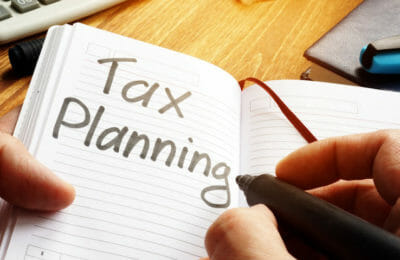Not so long ago, HMRC changed the way it defines business and non-business activities for VAT purposes. It is particularly important to know about this because it has implications for how activity by charities and VAT interact. You will also need to be aware if you are a non-profit organisation, a business providing nursery and crèche facilities, a business in receipt of grants or subsidies or an organisation or business carrying out what you consider to be ‘non-business’ activities.
How HMRC used to define ‘business activity’
HMRC used to apply six criteria to determine whether an activity is considered a ‘business activity’ for VAT purposes. These criteria are based on principles laid down in two legal cases dating from 1978 and 1981. Known as the ‘business test’, the six criteria asked whether a particular activity:
- Was a serious undertaking, earnestly pursued
- Was an occupation or function actively pursued with reasonable or recognisable continuity
- Had a certain measure of substance in terms of the quarterly or annual value of taxable supplies made
- Was conducted in a regular manner on sound and recognised business principles
- Was predominantly concerned with the making of taxable supplies for a consideration.
- Involved taxable supplies of a kind that, subject to differences of detail, are commonly made by those who seek to profit from them.
Why did HRMC change its definition of ‘business activities’?
HMRC believed that a number of court cases provided further clarification on what constitutes a business activity. Importantly, an organisation’s “overall objective or profit motive” should not be taken into account.
HMRC cites a 2016 case in the Court of Appeal that emphasised that “the correct test for determining whether an activity is a business activity is whether there is a direct link between the services or goods supplied and the payment received by the supplier.” The wider context of an organisation’s charitable motive or objectives is thus irrelevant.
This judgement also established organisations or charities need to look at each activity separately. Each should be correctly identified as a ‘business activity’ or ‘non-business activity’ for VAT purposes.
What is the current stance on organisations, charities and VAT?
The taxman is now using a two-stage test to determine the status of any given activity. This was considered during another Court of Appeal case in 2018. In essence, for something to be defined a ‘business activity’, it must meet these conditions:
- The activity results in a supply of goods or services for consideration
- The supply is made for the purpose of obtaining income therefrom (remuneration).
In short, if you supply goods or services without remuneration, you’re not involved in a ‘business activity’. However, if you obtain income from supplying goods and services (even below cost), then this is a ‘business activity’.
What do I do next?
VAT rules and regulations are complex. However, if your charity, organisation or business is currently engaged in what you believe to be ‘non-business activities’, it’s important to review these in light of the two-stage conditions. You can find HMRC’s full brief here and its VAT Business / Non-Business Manual here. If you are THP client, we’d recommend getting in touch with your account manager for advice.
About Karen Jones
Having worked for one of the world’s largest accountancy firms, Karen Jones uses her tax knowledge and skills to help clients obtain substantial reductions to their tax liabilities.
With an expanding portfolio of tax clients, Karen enjoys the variety her work brings her and particularly likes working with new businesses and people. With a growing number of tax clients, she frequently faces a variety of challenges and relishes the experience she gains as she solves them.
Karen likes the THP ethos: “I like the way the team has a professional, but friendly and down-to-earth approach – it creates a productive atmosphere that benefits everyone.”
Karen’s specialist skills:
- Personal Taxation
- Tax Efficient Planning
- Trust Administration












